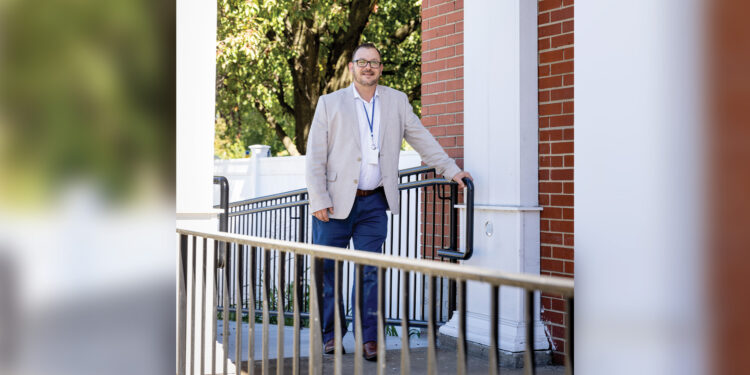Photo by Jamie Alexander
St. Benedict’s and the Daniel Pitino Shelter have been combatting homelessness in Owensboro and surrounding areas for over three decades. As needs continue to increase, funds for the two nonprofits are dwindling, and they are coming to the community for help.
“We’re catching the effects of the pandemic on the backend,” said executive director Harry Pedigo. “Our biggest need is funding. We receive some government support for outreach programs, but it doesn’t touch the upkeep and maintenance of our facilities.”
St. Benedict’s provides temporary 24/7 emergency shelter to 64 men nightly, serving more than 500 men annually. They also offer day shelter to 40 women and families at a separate location. In addition, St. Benedict’s provides 26 beds at four transitional residential homes for men recovering from substance abuse, veterans, and women with a crisis pregnancy.
Father Ed Bradley founded the Daniel Pitino Shelter in 1993 to create emergency and transitional housing for the growing homeless population in our area. Today, the nonprofit, nondenominational, privately supported organization strives to break the cycle of homelessness through a collaborative approach.
The shelter can serve 65 emergency shelter guests at the main property, four families in the three-bedroom transitional homes, and 12 individuals or couples in the Nicky Hayden Apartments. The soup kitchen they operate out of St. Stephen’s Cathedral provides hot nutritional meals to guests and the community 365 days per year.
“We’ve had great community support over the years, but our interactions have dwindled,” Pedigo said. “That’s something we’re working to change. Community support only accounts for 15-20 percent of our budget, and we need to get that number to 50 or 60. Every dollar helps.”
The soup kitchen serves over 638,000 meals annually, offering many individuals and families their only meal of the day. With no state funding, the kitchen relies solely on donations.
“We’re more than a homeless shelter,” he said. “There are many people that wouldn’t have food if it weren’t for us.”
As the winter months and colder weather approach, both shelters need more hats, gloves, and men and women’s thermals. The Pitino shelter also needs winter clothing for children.
Additionally, the facilities are seeking assistance with groceries, primarily canned foods, processed meats, ground beef, and packaged pork. Other necessities include hygiene products, coffees, cereals, and hand warmers.
St. Benedict’s and the Pitino Shelter provide targeted case management for individuals suffering with substance use disorder, mental illness, or emotional disorders. They also offer case management for individuals not suffering from those illnesses.
Guests and residents have access to laundry, showers, Bible studies, technology, and Wi-Fi. Additional services and programs include education, employment, housing assistance, advocacy, life skills, crisis intervention, and more.
“We offer a nonjudgmental atmosphere, and we address barriers to self-sufficiency and provide resources for people to move into permanent housing and become independent,” Pedigo said. “Both shelters provide safe, nonjudgmental shelter and social support services in a Christian atmosphere.”
Anyone interested in donating to either St. Benedict’s or the Pitino Shelter can call 270-688-9000.










